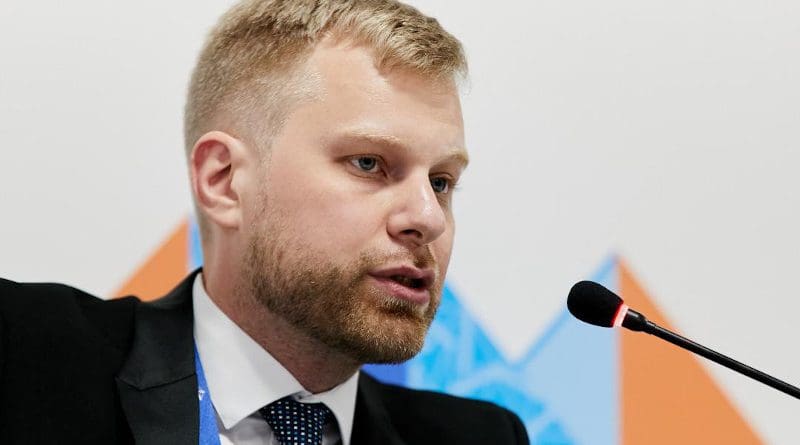Russia-Africa Summit Unique Platform Bringing Together Corporate Directors And Investors – Interview
As widely known, Russia plans to hold the second Russia-Africa summit in 2022, as a further step to make inroads into Africa – that comprises a diverse collection of countries, each with its own set of development setbacks and challenges. The political culture and investment climate are, in fact, diverse but are also important forces in determining the levels of the economy.
As it aims at raising its economic profile, Russia is strongly encouraging Russian business leaders to prioritize sustainable development-oriented projects as a practical step towards raising the living standard of millions of impoverished population in Africa.
For instance, JSC Institute Hydroproject promises to transfer its experience in advanced and innovative technologies, and efficient use of water resources, especially ways of managing and ensuring reliable hydro-energy supply. JSC Institute Hydroproject can further help in the accelerated social and economic development in Africa.
In this interview taken by Kester Kenn Klomegah for Eurasia Review, Vladislav E. Vasilyev, Head of International Projects Department at JSC Institute Hydroproject, discusses his company’s efforts directed at establishing hydro-projects in Africa, further touched on the state support for Russian business in Africa. Here are the interview excerpts:
How important is African market for your company, JSC Institute JSC Institute Hydroproject?
JSC Institute Hydroproject has vast working experience in African countries wherein we have done designs of HPPs in Algeria, Angola, Ethiopia, Guinea, San Tome and Principe, Tunisia, Morocco, Ethiopia. We would like to separately emphasize about the masterpiece high class engineering of the Aswan dam on the Nile river in Egypt. JSC Institute Hydroproject management has deep knowledge of the African market.
What are your expectations from African governments, industrialists and agribusiness directors in cooperating on products and services of your company?
African countries are among the fastest growing in the world. About one and half billion people live there, and that constitute approximately 20% of the world’s population. At the same time, there is a big demand in infrastructure development. Even the United Nations, forming the “Sustainable Development Goals” emphasizes the high development needs of the African region.
The African market is a big challenge in all areas of water use, from land reclamation to large and complex knowledge-intensive industries, not to mention the usual but much-needed electricity generation. In this regard, we see many opportunities for cooperation with governments, industrialists and in the huge agroindustry.
Do you envisage any key problems and impediments to developing business, especially in the sphere of agriculture in African countries?
Difficulties and obstacles are possible – this is life. However, we can look at things differently, and see the obstacles as opportunities and incentives. For example, the lack of land reclamation networks makes it possible to build and develop a water delivery system that can become a link to strengthen the local neighboring countries and peoples.
The construction of a hydroelectric power station requires a channel with a large water pressure, which means the presence of a water basin, a reservoir. This will not only provide the local region with electricity, but also provide water. Here are a number of issues that are being resolved with the participation of the design and survey and research school of such a company as JSC Institute Hydroproject.
How competitive do you see African market for Russian companies, generally, and for your company, specifically? From the previous experience, what challenges Russian companies and investors face in Africa?
There are several challenges, which are still in place for Russian engineering companies on African market. Russia is still not a member country of African Development Bank. AfDB announces many tenders, which are closed to companies from non-member countries. Still it is only a few African countries, who signed an agreement on the avoidance of double taxation with Russia.
Business needs vital information, knowledge about the investment climate and so forth. Do you think there has been an information vacuum or gap between the two countries?
In my opinion we can talk about the rapprochement of the positions of Africa and Russia, the formation of new and strengthening of long-standing ties. This is explicitly noted, for instance, by Russian Foreign Minister Sergei Lavrov, and Head of the National Chamber of Commerce and Industry of Uganda, Olive Kigongo.Joshua Setipa, Managing Director of the United Nations Technology Bank for the Least Developed Countries, says of the importance of high-tech companies: “It is important for us to continuously develop our partner network and establish cooperation with organizations that can help and support less developed countries with their technological and innovative potential. I am sure that working in Russia and, in particular, at the events of the Roscongress Foundation will help us to use the country’s opportunities for the benefit of others.”
He said so at the recent Russia-Africa summit in Sochi.
In your opinion, does the forthcoming second Russia-Africa summit planned for 2022 hold an opportunity for raising the level of investment and business engagement with Africa?
Russia-Africa summit is unique platform that is expected to bring together corporate business directors and potential investors from both regions – Russia and Africa. We can simply agree that investments are always possible, and Russia is highly interested in them. This is also a state and business interest. Such people and companies are also among our partners.
According to the achievements of recent years – this is not only the First Joint Russia-Africa Summit, but also during many previous bilateral forums, it is important to say that cooperation in the business sphere is just gaining momentum. Now there is a lot of work to be done, including a well-structured and well-coordinated policy for Russian business, restructuring foreign policy and supporting economic circles – with African politicians, business people and residents of African countries.
It is necessary to cooperate between scientific, technical, humanitarian, information, and digital platforms, and ultimately to develop common approaches for the implementation of our upcoming joint projects.

